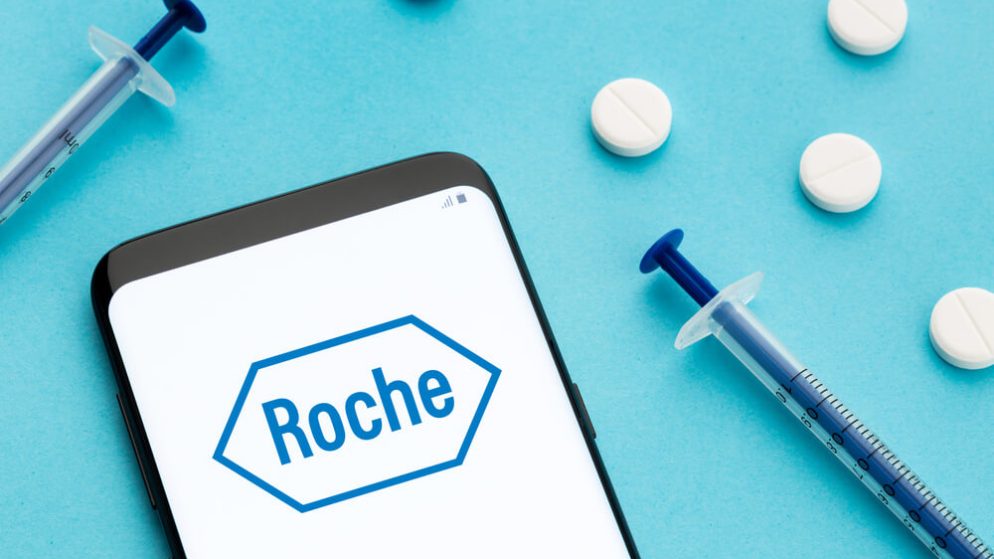



Get new exclusive access to healthcare business reports & breaking news




Roche was supposed to receive the FDA decision regarding the subcutaneous version of its cancer immunotherapy Tecentriq last week, but things have been delayed for some updates on the manufacturing process.
The FDA was supposed to send out a verdict on subcutaneous Tecentriq by now. But Roche now needs to update the therapy’s manufacturing processes, the Swiss pharma’s drug delivery technology partner Halozyme Therapeutics said in a securities filing September 7th. Roche filed the under-the-skin formulation to both the FDA and the European Medicines Agency in November. It’s targeting all existing indications of the original intravenous Tecentriq.
Meanwhile, patients in UK can already use the medecine. Halozyme announced, August 29th, the approval of Roche’s Tecentriq® SC (atezolizumab), using Halozyme’s ENHANZE® drug delivery technology, by the Medicines and Healthcare Products Regulatory Agency (MHRA) in Great Britain.
Tecentriq® subcutaneous (SC) is co-formulated with Halozyme’s proprietary recombinant human hyaluronidase enzyme, rHuPH20, allowing for subcutaneous delivery, which takes approximately seven minutes, compared with 30-60 minutes for intravenous (IV) infusion. Tecentriq® SC will be available to patients in Great Britain for certain types of lung, bladder, breast, and liver cancer.
“We are delighted that Roche has received approval of Tecentriq SC in Great Britain. Subcutaneous delivery of Tecentriq provides cancer patients a faster and more flexible treatment option and may alleviate pressure on healthcare system resources,” said Dr. Helen Torley, president and chief executive officer of Halozyme. “We look forward to additional regulatory approvals of our partner products utilizing ENHANZE.”
Multiple oncology studies suggest that most cancer patients prefer to receive their treatments via subcutaneous delivery, instead of intravenous infusion because of reduced discomfort, ease of administration, and shorter duration of treatment.
Tecentriq® SC is the first subcutaneous anti-PD-(L)1 cancer immunotherapy available to patients in Great Britain and is Roche’s fourth subcutaneous cancer therapy using Halozyme’s ENHANZE® drug delivery technology.8-10 The approval is based on clinical data from the Phase IB/III IMscin001 study, which showed comparable levels of Tecentriq® in the blood when administered subcutaneously, and a safety and efficacy profile consistent with the IV formulation.12 While the IMscin001 trial was conducted within the hospital setting, the SC formulation may be suitable for out-of-hospital administration by a healthcare professional.
The U.S. Food and Drug Administration (FDA) is currently evaluating Tecentriq® SC for regulatory approval.
Finding new ways to fight cancer is a longlife mission for many specialists and companies they founded. Actually, Halozyme, for instance, was led for seven years by Jonathan Lim who has been, since 2003, a leader and founding investor of four other biotechnology startups. These companies all delivered new treatments for the benefit of patients globally, had a capital of $1 billion and produced more than $4 billion of shareholder value. Dr. Lim’s ventures before founding Erasca, have been sold for large amounts of money to renowned larger companies. Beside his involvement with Halozyme, he has co-founded, funded and led several other successful ventures, including Bonti (acquired by Allergan), Eclipse Therapeutics (acquired by Bionomics).
Big pharma companies continue to acquire biotech smaller fish, to increase their pool of possibilities in finding the next wonder drug. Pfizer, for instance, has announced, last spring, its intention to purchase Seagen for a whopping $43 billion in order to further its reach in the field of cancer treatment. The pharmaceutical giant hopes to leverage Seagen’s biotech expertise and technology to develop novel cancer treatments that specifically target tumor cells while preserving surrounding healthy tissue.
Coming back to Roche and Halozyme, this delay in authorization for the US market won’t affect production and distribution in Europe, according to Genenteck officials.
Tecentriq is Roche’s second highest-grossing oncology drug, generating SFr1.8bn ($2.1bn) in H1 2023, as per the company’s half-year report. The subcutaneous version of the drug is expected to increase the drug uptake due to ease of administration. The SC version can also be administered in seven minutes, compared to the 30-60 minutes required to administer the intravenous formulation.
Halozyme is a biopharmaceutical company bringing disruptive solutions to significantly improve patient experiences and outcomes for emerging and established therapies. As the innovators of the ENHANZE® technology with the proprietary enzyme rHuPH20, Halozyme’s commercially-validated solution is used to facilitate the delivery of injected drugs and fluids in order to reduce the treatment burden to patients. Having touched more than 700,000 patient lives in post-marketing use in six commercialized products across more than 100 global markets, Halozyme has licensed its ENHANZE® technology to leading pharmaceutical and biotechnology companies including Roche, Takeda, Pfizer, AbbVie, Eli Lilly, Bristol-Myers Squibb, Alexion, argenx, Horizon Therapeutics, ViiV Healthcare and Chugai Pharmaceutical.
Halozyme also develops, manufactures and commercializes, for itself or with partners, drug-device combination products using its advanced auto-injector technology that are designed to provide commercial or functional advantages such as improved convenience and tolerability, and enhanced patient comfort and adherence. The Company has a commercial portfolio of proprietary products including XYOSTED®, TLANDO® and NOCDURNA® and partnered commercial products and ongoing product development programs with several pharmaceutical companies including Teva Pharmaceuticals and Idorsia Pharmaceuticals.
Halozyme is headquartered in San Diego, CA and has offices in Ewing, NJ and Minnetonka, MN. Minnetonka is also the site of its operations facility.
Roche is the world’s largest biotech company, with truly differentiated medicines in oncology, immunology, infectious diseases, ophthalmology and diseases of the central nervous system. Roche is also the world leader in in vitro diagnostics and tissue-based cancer diagnostics, and a frontrunner in diabetes management.
The company controls the American biotechnology company Genentech, which is a wholly owned affiliate, and the Japanese biotechnology company Chugai Pharmaceuticals, as well as the United States-based companies Ventana and Foundation Medicine.